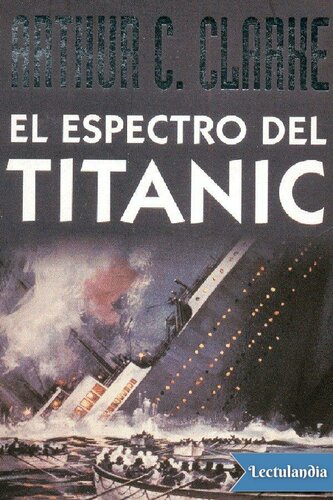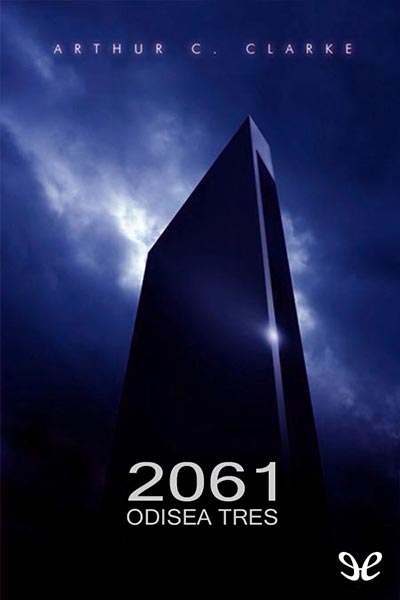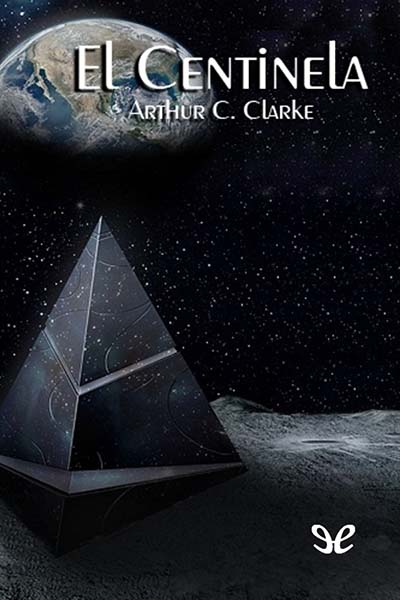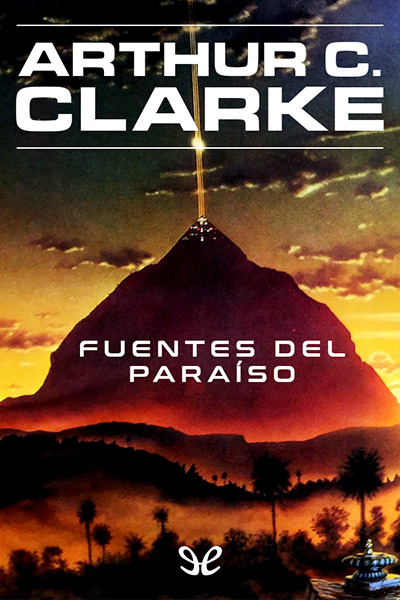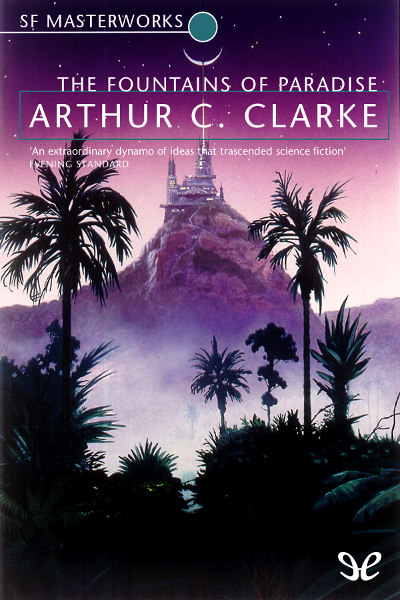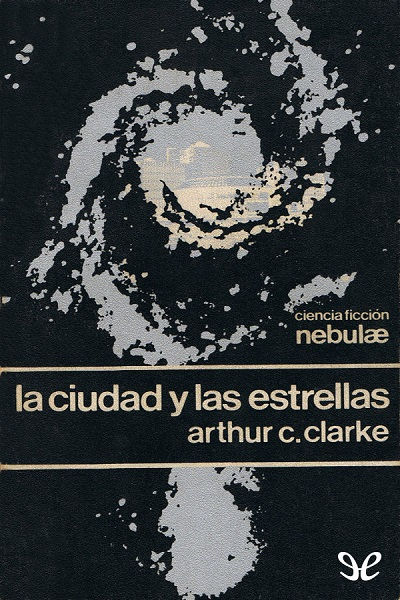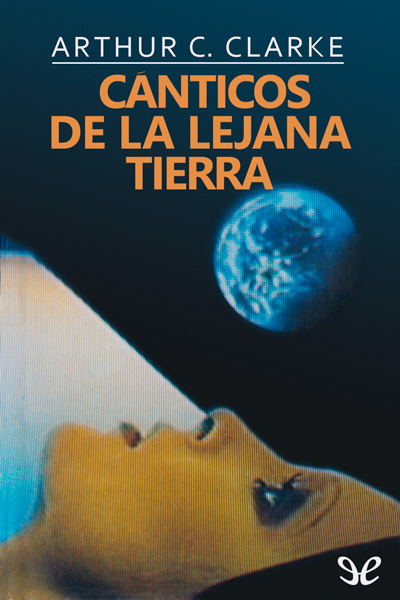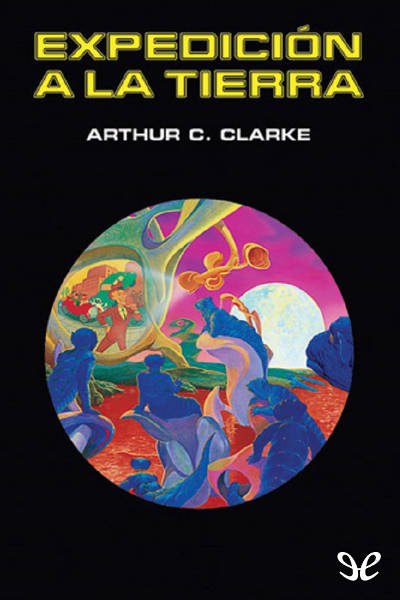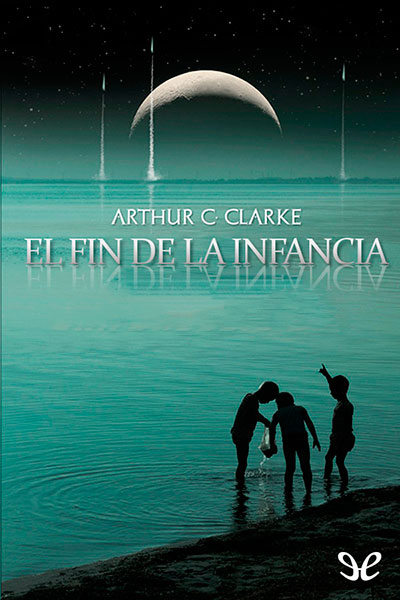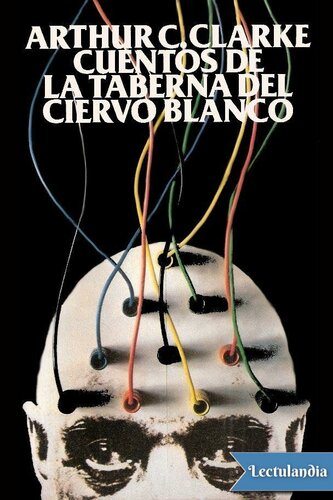oleebook.com
La fi de la infantesa de Arthur C. Clarke
de Arthur C. Clarke - Género: Ciencia ficción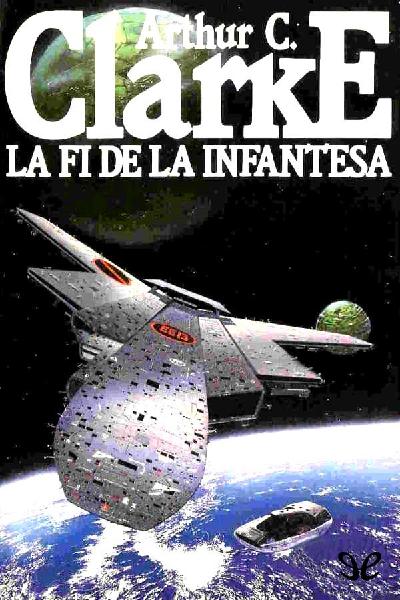
Sinopsis
La fi de la infantesa és una de les obres més respectades i llegides del conjunt dallò que anomenem «corrent utòpic» de la ciència-ficció. Descriu la naixença duna nova humanitat basada en lespiritualitat i lenergia, i el final de la civilització actual. El tall, que es produeix en el transcurs duna sola generació, és preparat per uns éssers extraordinaris, els «Grans Senyors». Aquests, com si de mainaderes es tractés, instal·len la pau i el benestar a tot el món i possibiliten levolució de lhome vers la utopia definitiva.
Libros Recomendados - Relacionados
Reseñas Varias sobre este libro
Kurt Vonnegut said of Arthur C. Clarkes novel Childhoods End that it is one of the few masterpieces in the science fiction genre. Vonnegut went on to say that he, Vonnegut, had written all the others.
As humorous as that is, at least the first clause of that declaration I feel to be true. Written simply but with conviction and persuasion, with an almost fable- narrative quality, Clarke has given to us that rarest of literary achievements: a science fiction masterpiece.
The genius of Clarkes achievement is compounded by the fact that his accomplishment remains so unique, how have later artists failed to match or even make an attempt at duplication? I especially d the racial memory (or racial premonition) ideas and the ideas of collective consciousness. Interestingly, Clarkes concepts could be seen as having a theological transcendent theme, perhaps even an allegory for awakening to a collective ego.
Clarkes ingenuity remains untouched and this work stands atop the science fiction canon, comparable to only a handful of other science fiction classics, including the novel that won the Hugo Award in 1954, the same year Childhoods End was nominated for that award, Ray Bradburys Fahrenheit 451.
2023 reread -
During this reading I considered the political and social climate of the time when this had been written and first published. World War II had ended, but the Korean War was beginning and there was still much global fear and anxiety and the full extent of totalitarian atrocities was still being grasped and understood. When a reader examines Clarkes great work but also similarities with other books written during the same period - 1984 and Fahrenheit 451 - we can see the dehumanizing themes prevalent in all of these works.
While this is a thought provoking book, full of science fiction themes but also philosophical musings about the meaning and the purpose of life, this time I also considered this as a political allegory, especially regarding collectivism and the role of the individual - and again noting comparisons with other works during this time.
Finally I am again reminded of how important this work is in the genre but also as a landmark in our literary history. The layers of religious and philosophical allusion and reference were impressive.
On a very short list of greatest science fiction stories of all time.
532 s4 comments Jeffrey KeetenAuthor 6 books250k
No utopia can ever give satisfaction to everyone, all the time. As their material conditions improve, men raise their sights and become discontented with power and possessions that once would have seemed beyond their wildest dreams. And even when the external world has granted all it can, there still remain the searchings of the mind and the longings of the heart.
The United States and the Soviet Union were in the midst of a military space race when large ships appeared in the skies over all the major cities. The aliens have come to keep humans from annihilating themselves.
An act of altruism? Or do they have another agenda?
The press dubs them THE OVERLORDS, but they much prefer to refer to themselves as The Guardians. They allow humans to govern themselves by whatever means they feel comfortable unless policy decisions involve hurting people. Mans beliefs were his own affair, so long as they did not interfere with the liberty of others. The Overlords also did not approve of hurting animals for sport. In Madrid, when the Spaniards insist on continuing to hold bullfights, a lesson is administered. Every time the bull is stabbed, the pain the animal is feeling is transferred to the audience.
No more bullfights.
Robotics and computers are advanced to the point that humans are only needed as overseers. Work weeks are cut down to twenty hours a week. (OMG sign me UP.) People are encouraged to go to college, to develop hobbies and skills, and even go back to school several times over their lifetimes to learn something completely new. The existence of so much leisure would have created tremendous problems a century before. Education had overcome most of these, for a well-stocked mind is safe from boredom.
And for a while the excitement of improving themselves keeps the humans on a spectacular track of not only bettering themselves, but also evolving civilization. Murder has become almost nonexistent, and when passion inspires such aggression, it is only the matter of turning a dial for The Overlords to find the perpetrator.
When I google NSA, the National Security Agency of course comes up, but so does No Strings Attached, which I found very ironic. Given the range and the depth of what the NSA knows about all of us, not just US citizens by the way, maybe we should start applying the term The Overlords to the United States government. It would be nice if they would convert all this information into something practical, catching murderers. Knowing how these things work, they may not want us to know that they are capable of doing that.
We might get fearful of our government.
Barrage balloons over London during World War II. Clarke observed balloons these floating over the city in 1941. He recalls that his earliest idea for the story may have originated with this scene, with the giant balloons becoming alien ships in the novel.
It seems to be the fate of all Utopias to turn leisure into sloth and turn unlimited possibilities into boredom. Interesting that Arthur C. Clarke uses the advancement of Television technology to be a major contributor to the degradation of a perfect society. People became passive sponges--absorbing but never creating. Clarke mentions that people in this society started watching television three hours per day. Rookies! The latest statistics that I saw mentioned that Americans now watch five hours of television a day on average.
Obviously, I dont watch television five hours a day as can be ascertained by how many books I read a year. If the Kansas City Royals are playing, I do watch about three hours, but Im also still reading and researching while the game is on. Baseball is the perfect background noise for doing just about anything, including taking a much needed nap to rest the noggin for a few minutes.
When people ask me how I read so many books a year and still work full time, I usually ask them how much time they spend watching television or playing with their cell phone or playing games on their iPad? Everyone has the same number of hours in their day; it just depends on how you choose to use them. I choose to read. People who read fewer books than me are making different choices or in some cases may have more obligations. Of course, this is relevant only because I see reading as the best way to evolve the mind. Im old fashioned that way.
There were some things that only time could cure. Evil men could be destroyed, but nothing could be done with good men who were deluded.
There are concerns voiced by various religious groups and also by people who are not thrilled about humans losing their ability to govern themselves, but for the majority of people the lack of responsibility and the lack of ambition to succeed are concepts they readily embrace. A society that was evolving to the greatest heights of artistic and progressive achievements starts to prefer apathy.
The Overlords are very careful to control what the humans learn about them. A man named Jan Rodericks stows away on one of their ships and sees a world he can barely comprehend.
And in its sky was such a sun as no opium eater could ever have imagined in his wildest dreams. Too hot to be white, it was a searing ghost at the frontiers of the ultraviolet, burning its planets with radiations which would be instantly lethal to all earthly forms of life. For millions of kilometers around extended great veils of gas and dust, fluorescing in countless colors as the blasts of ultraviolet tore through them. It was a star against which Earths pale sun would have been as feeble as a glowworm at noon.
In one of those time travelling, mind bending events that I always have trouble fully comprehending, Jan only ages a few months, but has missed eighty years on Earth.
The Overlords make allusion to the fact that science can destroy religions, but that science is not the top of the mountain, but only a stepping stone to a much greater understanding of life. They search through our archives looking for information on the paranormal and other elements that have been written about outside the realm of science. When the children of earth start to develop telekinetic powers, the true reasons for The Overlords being our guardians becomes clear. We also learn that the Overlords defer to another power much greater than their own capabilities called The Overmind.
I caught a commercial for the six hour miniseries that the Syfy Channel is planning to launch in December and realized that I have hauled a copy of this book around with me for a couple of decades without reading it. Sometimes we need one more push. As always Im impressed with Arthur C. Clarke??s ability to tackle the bigger issues and to be somewhat controversial in his presentation of the best and worst of being human. It does seem that we are incapable of possessing true happiness for very long. We are designed for strife, for pain, for joy, and ambitious achievement. When any of those elements are removed from the equation, we start to falter. Joy can only be fully appreciated if we experience pain. Ambition can only be relished if strife was overcome to achieve it.
As The Overlords fix all the problems, there is a huge cost, too big of a cost, in that we lose what makes us unique. It is disappointing to think that harmony and lack of fear will turn us into beings unworthy of admiration. When defense is no longer a primary objective, it is disheartening to believe that the energy previously expended on security can not be transferred to higher levels of achievement in the arts, philosophy, music, and literature. To be the best that we can be, we still need the growl of the Sabretooth tiger coming from just beyond the edge of the firelight. We still need to be capable of picking up a club and saying here kitty, kitty, kitty.
This is a short book, power packed with ideas and concepts, and certainly deserving of inclusion in the list of classic, influential, science-fiction books.
See all my recent book and movie at http://www.jeffreykeeten.combook-to-film science-fiction366 s Matt216 715
I've done a lot of odd jobs over the years. At one point, back before I got my degree and I was still working to put my wife through school, I worked as a delivery driver for a company that sold construction supplies - 50 lb boxes of powdered Kool-Aid, portable generators, hammers, safety harnesses, 2x4's, circular saws. It was one of those barely above minimum wage jobs generally populated by people who for whatever reason find themselves unable to get anything else and competing against a large number of similar people where the decisive advantage is often no more than you show up everyday.
My colleagues were an interesting mix: an ex-door gunner on a SOCOM gunship, a teenage kid dreaming of rapping his way off the street, the musician whose real job was Jazz and whod played everywhere in Nawlins, a bow-kneed redneck that could still remember fondly when racism was acceptable but couldnt manage to make his hatred stick because he didnt really believe it, and the black racist ex-boxer would be preacher who once told me with an apologetic smile that white people couldnt get into heaven because they had no souls. One of my colleagues was an aging chain smoking gray haired country boy missing half of his teeth and so learning disabled as to need my help with basic addition.
He probably knew more about literature than many of the professors I've had, or at the least he was more interesting to talk to and his opinions were less rote. I found this out after he came in one day aglow after seeing 'Crouching Tiger, Hidden Dragon'. He absolutely needed someone to talk about the experience with, and by that time I was unable to hide the fact that I was an "egghead" so I was probably the only person he knew that was qualified. Turns out, he'd lived a rather interesting life. He was fluent in Spanish and had spent his youth working construction on hotels up and down the Central and South American coasts. And, he'd read everything. As I came to realize that this redneck knew something about books, despite as best as I could tell never completing high school, I started inquiring into his tastes. What I found remarkable was not so much that he'd read everything I'd ever read and then some, but that on those things we'd both read he shared much of the same opinion. At some point in one of the conversations Arthur C. Clarke came up, and he said, "Well, I d 2001, but I really think that 'Childhood's End' is his real masterwork."
Not only do I agree, but I lack the ability to give a better recommendation.
I don't recommend the works of Clarke in general, and certainly not to anyone who isnt a fan of science fiction. His works - even the better ones - always suffer from seeming to be short stories turned into novels. He also displays a strange combination of fascination with but complete incuriosity towards religion and spirituality that can probably be infuriating at times to the religious and non-religious a. But this work rises above its defects and is well worth your time.literature science-fiction325 s1 comment Mario the lone bookwolf805 4,790
Overlord and Overmind come to open up many questions about the meaning of life and stuff.
The main underlying theme is how much of the presents given during a first contact event should be used or not and this trope grew to a redwood tree size and may evolve to a planet tree in the future with all the subfields, new interpretations, use in a mainly Social Sci-Fi setting, etc.
How Sci-Fi was written those days would be close to unsellable today because each agent would just step back as wide as possible while his panicked eyes that are screaming: "Not enough bucks to make due to far too high complexity."Although this might be limited to the philosophical, complex, and far over my poor little mind concept works many of the behemoths of classic and golden age sci-fi used to deal with these bad, old days. Bad cause human evolution = technological progress moves on, being the only thing distinguishing us from apes. Not feeling sorry for telling the truth.
The science part, on the other hand, has exploded to ultra hardiness in many new works and can often easily be skimmed and scanned without losing much of the inner plot logic and red line. Subjectively I deem that the reason why science got big and higher philosophy got lost in the genre, because the ideological concepts have to be integrated into the whole thing and one can´t just jump over the difficult parts. Feels too much work rereading many passages to get it.
It´s really, brrr, shivers, sometimes more feeling than learning, getting knowledge or, in general, nonfiction and not easygoing, funny, and quick entertainment. Be warned, because it hits hard to find out that one has invested time in something that is called fiction or formula literature and suddenly one opens the book again and finds out that one is completely off track and undertands nothing anymore. But maybe I´m just slow on the uptake, not the sharpest knife in the shelf, biasing and cognitive dissonancing my way around that sad, self- made incompetence and unconsciously fake newsing about my favorite genre. Maybe, or very probably, sorry for that.
Clarke and Lem are definitively the worst in this case of overachieving in sophisticated mind game complexity, it blows little minds mine on a general level. Lem is the only one, I know so far at least, who comes close to Clarke and has a much darker, sarcastic, and pessimistic underlying tone. The cynical, disillusionized uncle who makes one laugh while Clarke is sitting in the other corner of the sci-fi family meeting and is still wanting one to believe in a quick realization of a positive outlook on humankind and life in general. Not absolutely, but still optimistic in contrast to the grumpy, black comedy alternative.
It's really quite tricky to read Clarke (and Lem and some parts of Heinleins´work that aren´t too weird), compared to the much more easy-going and more plot-driven and space opera style Asimov, Herbert, etc. because it´s so fully packed with this amazing language and so many characters talking college professors that, without full focus, much of the additional value and the understanding gets lost.
But being left with many philosophical thoughts about life, death, immortality, the future of humankind on earth and in space, alien invasions, visits, visitation, medical examination (yes, that thing), etc. is fully worth it.
Tropes show how literature is conceptualized and created and which mixture of elements makes works and genres unique: https://tvtropes.org/pmwiki/pmwiki.ph...
https://tvtropes.org/pmwiki/pmwiki.ph...clarke-arthur-c271 s mark monday1,747 5,544
you think you're so fucken smart, don't you mark? ha, think again. all your little plans and goals, your little community of friends and family and colleagues, your whole little life... what does it matter in the long run? not a whole fucken lot. grow up.
take this book for example. a classic of the genre, written by a classic author. you thought you knew what you were getting into; you've read countless examples of the type. you sure are a well-read little scifi nerd, aren't you? for the first half, maybe longer, you were right. a well-crafted central character, flavorful supporting characters, intriguing aliens, a spicy mystery to solve. it was all laid out as expected and the pleasures were of a familiar sort. when the mystery of the aliens' appearance was solved, you were a wee bit surprised. but it was a comfortable sort of surprise. it's not it blew your mind. it was clever. but everything up until then was as you expected. well fucking Congratulations, chump, your predictions came half-true. you want a medal? you don't get one. there aren't any half-medals.
there are some fucking spoilers that follow!
you weren't expecting what came after. those revelations came out of the blue for you, didn't they? you didn't expect to be made to feel so small, to get a little depressed, to have your expectations pounded all to pieces. it was kinda beautiful in a way, kinda mind-blowing. but mainly it was fucken sad. oh you poor baby. you have your own private little dreams of widespread empathy and the future of children and the future of humanity and our future place in the world and - at the most secret, sentimental heart of you - some corny spiritual post-life higher consciousness transcending type shit. you didn't expect that to be a part of the novel, did you? you didn't expect it to all come out, be laid out on the page a body in a morgue, your body, and then just get eviscerated. your dreams of some sort of future beyond this present, where you are still you, a wistful dream that you to think is both delicate and profound one of those origami things you to do. what's your favorite one? a pinwheel. well you get to watch that pinwheel of a dream get smashed and turned inside out and torn up into bits. revealed as a typically naive and childish fantasy. ha! so much for that. grow the fuck up, chump.rain-man- scifi-classic214 s Ahmad Sharabiani9,564 148
Childhood's End, Arthur C. Clarke
Childhood's End is a 1953 science fiction novel by the British author Arthur C. Clarke.
The story follows the peaceful alien invasion of Earth by the mysterious Overlords, whose arrival begins decades of apparent utopia under indirect alien rule, at the cost of human identity and culture. In the midst of the US-Soviet rivalry for space, unknown spaceships appear over all major cities on Earth, ending the race. Spaceship crews avoid showing their faces, but they bring peace, well-being and security to humans. Unknown visitors to the planet have advanced technology to such an extent that their abilities are magic to the human eye. Resistance to their will and determination is useless. Although their ultimate goal is hidden from humanity, they are openly helping the earth and its inhabitants, and even fighting violence against animals ...
???????? ??? ??? ?? ?????: «????? ??????»? «????? ?????»? ???????: ????? ?? ?????? ???????????: (????? ?????)? ????? ?????? ????? ??? ?????? ??? ????? ???1983??????
?????: ????? ??????? ???????: ????? ?? ?????? ?????: ???? ??? ????? ?????? ????? ???1362? ??285?? ????????? ???? ????? ?? ????????? ???????? - ???20?
?????: ????? ?????? ???????: ????? ?? ?????? ?????: ??????? ??????? ?????? ?????? ???1363? ??336??
????? ?????? ?????? ?? ????? ????? ????? ????????? ? ?? ????? ?????? ????? ?? ???????? ???? ???????? ??? ????? ??? ?? ???? ???????? ?? ????? ?????? ?????? ? ?? ???? ???? ?????? ?? ??????? ??? ????? ?????? ?? ??? ?????????
?????: ???? ?? ????? ??????? ? «??????» ? «?????»? ???? ????? ???? ?????? ???? ????????? ?? ???? ???? ?????? ??? ???? ? ????? ???? ???????? ? ????? ? ??????? ?? ?? ?????? ?????????? ??????? ?????? ??? ?? ???? ???? ????? ? ???? ????? ???????? ??? ???? ???? ? ????? ? ????? ???? ???? ?? ?????? ?????? ???? ?????? ??????? ????????? ? ???? ? ????? ?? ???? ?????? ?????????? ?????? ???? ?? ??????????? ????? ?? ??? ???? ???? ???? ?? ??????? ?????? ???? ?? ?????? ? ?????? ? ?????? ??? ?????? ?? ?????? ????? ??? ? ??? ?????? ?????? ?? ????? ?????? ???? ?? ?????? ????? ?????? ?? ????? ? ?????? ??? ???? ???????? ? ??? ?? ????? ???? ??????? ???? ?????? ???????...?
????? ??????? ????? 08/11/1399???? ???????? 29/11/1400???? ???????? ?. ??????? Leonard GayaAuthor 1 book1,033
This is a strange and beautiful novel. Written in the early 1950s (some 15 years before 2001: A Space Odyssey), it is, with Asimovs (overrated) Foundation, Bradburys (superb) The Martian Chronicles and a few others, one of the significant works of sci-fis Golden Age. Oddly enough, apart from a few plot irregularities and the outlandish authors naivety regarding the paranormal and the occult, Arthur C. Clarkes story doesnt feel dated.
The plot is based on a few episodes scattered in time. It starts with a situation that has since become commonplace in SF literature and film: alien UFOs descend from space and park themselves over the major cities on Earth a vision inspired by the barrage balloons Clarke had seen hovering above London during the Blitz in 1941. However, there is neither destructive attacks (cf. The War of the Worlds, V, Independence Day), nor strange signs coming out of these spaceships (cf. Close Encounters of the Third Kind, Arrival/Stories of Your Life). In this instance, the aliens bestow utopia upon humanity. Later on, after a few leaps forward in time and across generations, we understand how this new heaven on Earth is, in fact, humanitys swan song.
Arthur Clarkes style ( that of many other SF writers of the day) is explicit, plain, nondescript, almost flat. He manages nonetheless to make his story perfectly lively and suspenseful. But the real masterstroke of this novel is the ending. As we witness the last moments of our planet, the story takes a genuinely Dantesque and sublime dimension, evocative of the majestic and unfathomable vistas of Olaf Stapledons Star Maker and Last and First Men, or Teilhard de Chardins Le Phénomène humain. This is, in essence, a true masterpiece within its genre.
Edit: Syfy recently released a four-hour miniseries, based on Arthur Clarkes novel. As someone prophetically puts it in the book, it has become a full-time job keeping up with the various family serials on TV! Still, I have managed to watch this one. It is, roughly speaking, true to the novel's structure: three episodes, one for each section of the book, and a plotline that thins down but doesnt deviate too much from Clarkes vision. The imagery is reminiscent of Kubrick (2001), Spielberg (Close Encounters) and Carpenter (Village of the Damned). However, the screenwriters have obviously considered appropriate to elaborate on the main characters romantic lives (Stormgren, Rodricks and Greggson, particularly) and indulged in a melodramatic tone that, unfortunately, bogs the whole thing down.166 s1 comment Emily (Books with Emily Fox on Youtube)579 65k
As a sci-fi fan, I've been trying to go back and read some of the classics and it's been... interesting.
The book manages to have some very captivating concepts while being quite tedious to read.
The book felt dated when mentioning POC and women which, while not surprising, did still take me out of the story at times.
Overall I'm glad I read it, at least I can consider that an achievement as I look at all the "top 100 sci-fi books to read in your lifetime" type of lists but, contrary to popular opinion, I don't think it's something you must read.
If you're curious go for it. If you're not feeling it, it's fine to skip it.145 s BlackOxford1,095 69k
Theological Politics
For an avowed atheist, Arthur Clarke had a great deal to say about God, and not all of it negative. Childhoods End is a tale of the theological roots of politics and how religious belief simultaneously stimulates and inhibits human society. Clarkes view is subtle, complex, and appropriately cosmic. As a commentary on the centrality of religion to human existence - for its opponents as well as its adherents - Childhoods End is hard to beat.
If I read Clarke correctly, his view is that God is not the product of frightening illusion but of loving emotion. God is the idea we use to describe the wholly irrational but irresistibly compelling force of human affection. Fear is merely a derivative emotion brought about by the threat of loss of affection, not something positive, therefore, but an absence of love. The force of love is invisible, immaterial, unmeasurable, enacted everywhere and at all times; but it is, without any doubt, real. What Clarke does in Childhoods End is provide a voice for such philosophical realism.
Love in all its forms - sexual, familial, communal, special, and inter-special - is only minimally an instinct, that is a motivation or drive. Rather it is a learned ability, a capacity which increases with experience and practice. Childhoods End opens with conflict; moves to feelings of trust and friendship by one individual towards a powerful alien; and develops, under alien direction - which is effectively omniscient and omnipotent - into general peace and harmony among all of humanity. The capacity to love evolves over a century such that personal jealousy has disappeared, crime is almost unknown, involuntary or oppressive human toil has been eliminated, economic abundance and equality have been substantially achieved. In other words: paradise has arrived.*
Love is also a metaphysical condition. That is, it cannot be demonstrated to be beneficial, or even to be at all, except through a commitment to it. It is self-validating just as its antithesis, fear, is self-validating. Love and the world is loving; fear and the world is fearsome. The alien Overlords bring the whole of humanity to the metaphysical revelation of love through their tutelage and discipline. Only when love has been created as a reality can it be perceived and appreciated as a reality. This is a metaphysical paradox which is known to the Overlords, but must be demonstrated by human beings to themselves.
But the stars are not for man, the Overlord Supervisor proclaims. Human beings are not sufficiently competent in the skills of love to include anything outside their rather insignificant world. They may never be. They are therefore denied by the Overlords - in the name of love - the knowledge which would allow them to travel to distant worlds. This constraint is annoying and incomprehensible to many, mainly scientific types - not un the prohibition of eating from the Tree in the Garden. And the Supervisor could foresee the consequences, just as the book of Genesis had described - a loss of the Golden Age of innocence.
But it is not the scientists who are the first to rebel. The trouble starts among creative types - artists, actors, film producers, writers, musicians. They feel cheated because they have nothing to struggle against. Without an other, they say that society has lost the ability to be creatively imaginative. So they club together in an isolated sub-culture to reverse the trend, as they see it, of people becoming passive sponges absorbing banal popular culture. Led by a Moses- figure, the artistic inhabitants, appreciate the peace and ease of their world but still feel it is inadequate.
So according to Clarkes story, the half-life of metaphysical appreciation is extremely limited. Love and its effects are easily taken for granted. We are a thankless species in our search for more, better, adventure or just something different. The skills of love can be lost within a generation. The absence of love spreads a virus among a societys children, creating a new species through a sort of Lamarckian mutation. The consequences are catastrophic: It was the end of civilization, the end of all that men had striven for since the beginning of time. In the space of a few days, humanity had lost its future
Theology considers love as a gift which is received from elsewhere. It cant be produced on demand, only received when made available. We have no right to it and it dissipates when it is presumed upon. More important, it can be taken away by whoever or wherever it came from. It can disappear instantly as both an emotion and a practice. Love is a mystery about which Homo Sapiens has no clues. Therefore, when love is lost, we are wont to deify and pray to it as well as for it. Hence the remark of one of the characters early on in Childhoods End: Basically, the conflict [between the Overlords and humankind] is a religious one, however much it may be disguised.
So the reason for the Overlords refusal to enlighten humankind eventually is made clear The road to the stars was a road that forked in two directions, and neither led to a goal that took any account of human hopes or fears. There may be an Overmind which is superior to the Overlords and calls the shots in the universe; there may even be an intelligence, or many, which are superior to the Overmind. It matters not at all. Oblivion is inevitable. Love as we know it will ly be destroyed since it doesnt really seem to conform to any cosmic purpose. This is a brutal religious truth and one wed rather not deal with: There is no reward for love, except love itself. Recognition of this truth is the real end of childhood and marks an entry into grown-up thinking.
*There is substantial theological precedent for the idea of an evolving capacity for human beings to not only behave with each other, but also to behave, as it were, when confronted with divine revelation. The medieval Joachim of Floris, Nicholas of Cusa, and the modern Teilhard de Chardin are Christian examples. Jewish Kabbalists Akiva, Luria, and Abulafia held similar views. Interestingly, it is the Mormons who hold this view most explicitly in their doctrine of the progressive divinization of humankind. Clarke is clearly tapping in to a long-held cultural tradition in this story. See here for more on the theology of sci-fi: https://www.goodreads.com/review/show...american philosophy-theology sci-fi138 s Petra on hiatus but getting better.Happy New 2024!2,457 34.8k
I read this long ago, just when I was becoming a teenager and my tastes were changing, you might say I read it at childhood's end.
"When I was a child, I spake as a child, I understood as a child, I thought as a child: but when I became a man, I put away childish things. 1 Corinthians 13:11. But we cannot do this without the help of our parents and teachers and politicians. Well some of them. A few. One or two, you know. And so it is the Aliens come.
The story is essentially the one of zen buddhism told as scifi-fantasy. Its climax is nirvana. Nirvana for all, for the Earth.
Nirvana is the liberation from the repeating cycle of birth, life and death. It is the extinguishing of desire, affection, aversion, delusion and ego. All that makes us individuals evaporates in the uniting with divine power of the universe in perpetual bliss. And on that note, the book ends.2014- books-read-a-long-time-ago fiction ...more128 s Samadrita295 4,941
If science fiction usually treads the fine line between mere speculation and actual scientific feasibilities, then Arthur C. Clarke can be accused of taking a cosmic leap of faith into the realm of highly unrealistic speculation, in this book.
For at least 75% of the narrative, I remained largely clueless about where the story was heading and for the remaining 25% I couldn't help but roll my eyes at the ludicrousness of it all.
Aliens, who are referred to by a fancy name 'Overlords' (*eyeroll*) to boot, come down from a distant galaxy in the universe and establish their rule over Earthlings. Earth transforms into a kind of utopia in a hundred years during which disease, poverty, hunger, crimes, social inequality, threat of nuclear wars are permanently eliminated thanks to the diplomacy and benevolence of the Overlords. And then comes the shocker or the real reason for the Overlords colonizing our cherished planet - turns out the almighty Overlords are no more than mere agents in the service of an even higher form of intelligence called the 'Overmind' (*more eyeroll*) who seek to tap into the reserves of metaphysical power of the mind of man and help mankind transition into the next stage of evolution.
Don't bother trying to make sense of that last part. It didn't make much sense to me either and I generally keep an open mind while reading science fiction. And what happens at the end sounds way more ridiculous that what I wrote for the sake of this review.
In his effort to explore a subject existential crisis (why are 'we' here? what is the meaning of life?) and ponder on phenomenon Science has still not been able to explain convincingly enough, Clarke has taken a tumble into the abyss of sheer absurdity. Not even willing suspension of disbelief helped endear me to your theories Mr Clarke.
Mankind's purpose of existence is to birth an ultimate generation of not-very-human children with potent psychic powers (*insert more eyeroll*) who achieve a sort of communion with the 'Overmind' (was this Clarke's euphemism for 'God'?) and get to be one with the Universe. While their progenitors eventually die out, thereby, wiping out the last of the human species as we know it. (Huh?)
Neither is Childhood's End event-driven nor does it contain the heart-stopping suspense that I have come to associate with Clarke's creations. And to further intensify my lack of interest in the book, none of the characters made an impression.
I guess Clarke's aim was only to propound a theory (albeit a far-fetched one) rather than to weave an intriguing tale revolving around space exploration/travel. And I was clearly not among the target audience of this book.
But this does not in any way diminish my love for Clarke. My science-fiction adoring soul, will come back to this man time and again, in search of a story as fascinating as 2001: A Space Odyssey.
I just hope I find something better next time.
**Originally posted on:-April 3rd, 2013**This entire review has been hidden because of spoilers.Show full review1001-and-more dystopian-fiction hugo-nebula-locus-awards ...more105 s1 comment Frank Hidalgo-Gato DuránAuthor 8 books231
Esto es una maravilla de libro.Me ha sacado las lágrimas. Y no precisamente por ser yo aquel romántico; todo lo contrario! Soy tan...practico,se dice? Nada, son cuestiones orgasmo-sinapticas de un ser ajeno a este mundo,como lo soy yo.
Este libro es una obra de arte. Cómo se puede escribir un libro así y haberlo publicado hace más de 65 años?! De qué manera evoluciono yo ahora lo tuyo,Arthur? Jajaja, tranqui,en eso estoy! Ya veis? Una vez más me encontráis hablando a solas
Autor del comentario:
=================================
